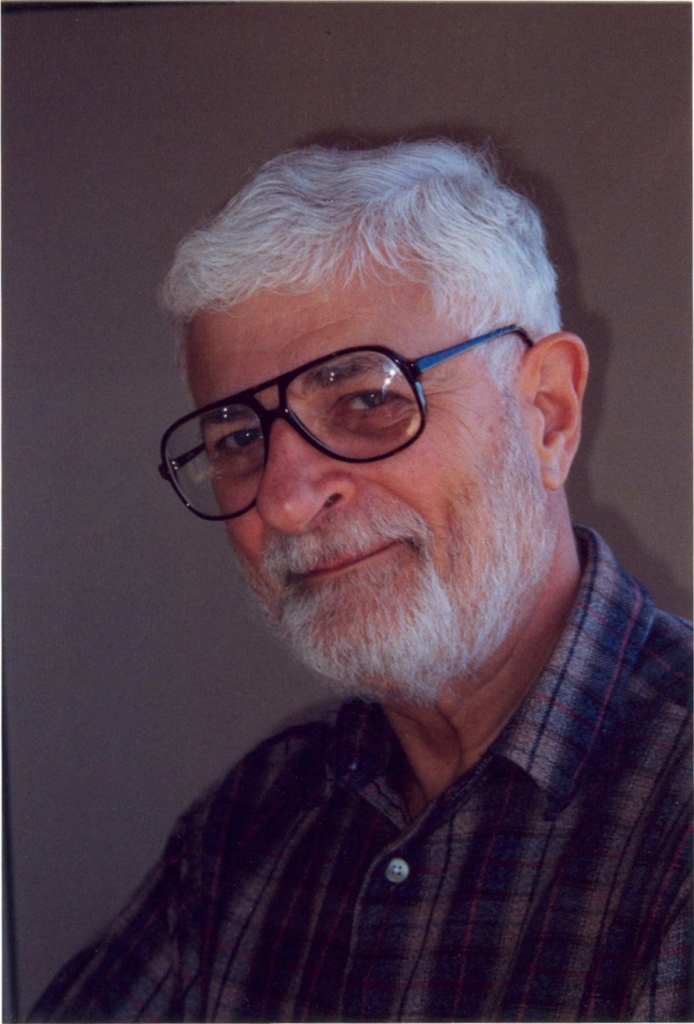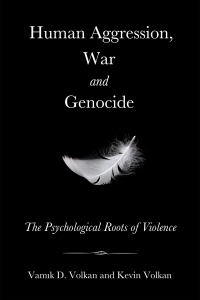 VPsaS is fortunate to have Vamık Volkan, MD, DFLAPA, FACPsa, as a former President and longstanding member of our society. He has written numerous articles and books and made positive worldwide contributions in the areas of psychoanalytic theory and technique, international relationships, academic studies (empirical and academic research of his theories), and the training/teaching of therapists (link to his VITA). An award-winning movie/documentary has been made about his influential work, Blind Trust: Leaders and Followers in Times of Crisis (originally called Vamık’s Room). It was directed and written by Molly Castelloe, and describes the psychoanalytically grounded psychopolitical work of Dr. Volkan.
VPsaS is fortunate to have Vamık Volkan, MD, DFLAPA, FACPsa, as a former President and longstanding member of our society. He has written numerous articles and books and made positive worldwide contributions in the areas of psychoanalytic theory and technique, international relationships, academic studies (empirical and academic research of his theories), and the training/teaching of therapists (link to his VITA). An award-winning movie/documentary has been made about his influential work, Blind Trust: Leaders and Followers in Times of Crisis (originally called Vamık’s Room). It was directed and written by Molly Castelloe, and describes the psychoanalytically grounded psychopolitical work of Dr. Volkan.
The importance, and depth of Dr. Volkan’s work has resulted in his nomination for the Nobel Peace Prize four times, with letters of support from 27 countries. He made far reaching diplomatic interventions and contributions with Jimmy and Rosalynn Carter at the Carter Center. As the Founder and Director of the Medical Center for the Study of the Mind and Human Interaction, he bridged and integrated two areas, international relations and psychoanalytic theory. These ideas were utilized to help international enemies and feuding parties resolve their conflicts by meeting in person and discussing their conflicts.
In speaking with Dr. Volkan three themes emerge in his reflections about his life’s work. First, in all of his professional endeavors, he vigorously maintains his identity as a Psychoanalyst, even when he has received external pressure to stray from the fundamental principles of psychoanalysis. It is this firm hold on his core psychoanalytic identity that adds to the effectiveness of his academic, clinical, group and international interventions. Those who interact with him likely sense, consciously and unconsciously, his clear vision, his commitment to his goals, and his personal integrity.
Consistent with psychoanalytic theory, Dr. Volkan discusses his career, with a perceptive, longitudinal and etiological focus, identifying biographical and psychological experiences influencing his thinking, career, and interventions. For example, Dr. Volkan openly discusses how a close friend and roommate at medical school, was murdered by terrorists in Cyprus. Dr. Volkan remarked that when this tragedy occurred, “I was safe in America.”
This tragedy led Dr. Volkan to begin his work on mourning and depression, which he applied to psychoanalysis with individuals and to the shared mourning process in societies traumatized by wars and conflicts. He also developed now widely applied theories of “linking-objects and linking phenomena”. This is vividly described in his book, Psychanalytic Technique Expanded: A Textbook on Psychoanalytic Treatment (2011), wherein, Dr. Volkan recalls thirty years after the death of his above-mentioned friend, a chance meeting with the friend’s brother. This meeting activated a lengthy mourning process, and revealed elements of survivor guilt.
Dr. Volkan was a member of the American Psychiatric Association Committee on International Relations when war broke out between Egypt and Israel. In 1978, Anwar Sadat and Israeli were meeting, and Dr. Volkan was called upon to study the “psychological wall” that was impeding the two countries from resolving their differences. Dr. Volkan initiated efforts to bring Arabs and Israelis together through dialogues that lasted about five years, with meetings one to two times per year.
Secondly, he applies psychoanalytic methodology and theories in novel, and creative ways to effectuate conflict resolution in highly charged international and cultural conflicts. Theoretical applications of ‘chosen traumas’, The Tree Model, and ‘large group identity’ are representative of the ideas he has integrated and utilized in his diplomatic work. In his book, Enemies on the Couch: A Psychopolitical Journey he states:
The aim of psychopolitical dialogues is to reduce poisonous emotions and resistances to change (both conscious, more importantly, unconscious), and thus allow more realistic discussions and strategy planning to take place by a limited, but influential, number of members of the opposing groups.
His psychopolitical theories have opened the door for others to use his ideas to study, understand and resolve worldwide conflicts. In his international work he applies a broad, historical view of the world, considers the impact on individuals of their large group identity, and utilizes theories of internal psychological dynamics as it impacts individuals. These theories are being studied by academic departments in multiple disciplines.
 Third, consistent with his psychoanalytic identity he has a deep knowledge of the history of the countries, individuals, and culture that is the focus of his interventions. He uses this historical knowledge to help leaders and patients understand the impasses that are walling them off from resolutions to their conflicts and repetitive maladaptive behaviors. In a recent book coauthored with his son, Kevin Volkan, Ph.D. Human Aggression and Genocide: The Psychological Roots of Violence (2025), there is a thorough examination of the historical and psychological roots of genocide, racism and war. In the movie, Blind Trust, Dr. Volkan discusses group identity and how this is a key issue in understanding international relations. With the perception of an historian, he elucidates how some societies and large groups develop an “entitlement ideology” in which they hold onto the idea that, “One day I will get what I lost back.”
Third, consistent with his psychoanalytic identity he has a deep knowledge of the history of the countries, individuals, and culture that is the focus of his interventions. He uses this historical knowledge to help leaders and patients understand the impasses that are walling them off from resolutions to their conflicts and repetitive maladaptive behaviors. In a recent book coauthored with his son, Kevin Volkan, Ph.D. Human Aggression and Genocide: The Psychological Roots of Violence (2025), there is a thorough examination of the historical and psychological roots of genocide, racism and war. In the movie, Blind Trust, Dr. Volkan discusses group identity and how this is a key issue in understanding international relations. With the perception of an historian, he elucidates how some societies and large groups develop an “entitlement ideology” in which they hold onto the idea that, “One day I will get what I lost back.”
His work is an example of how one person, using their skill, expertise , generosity and knowledge as a psychoanalyst, is able to reach and improve many lives around the world.

